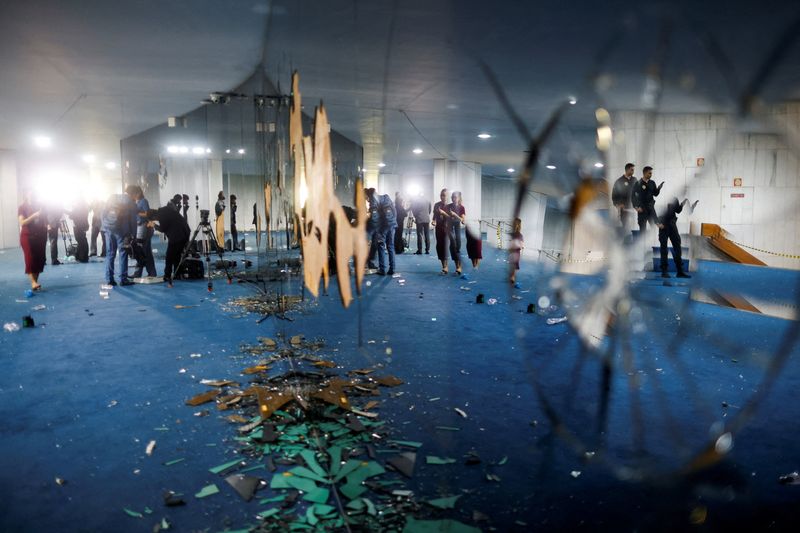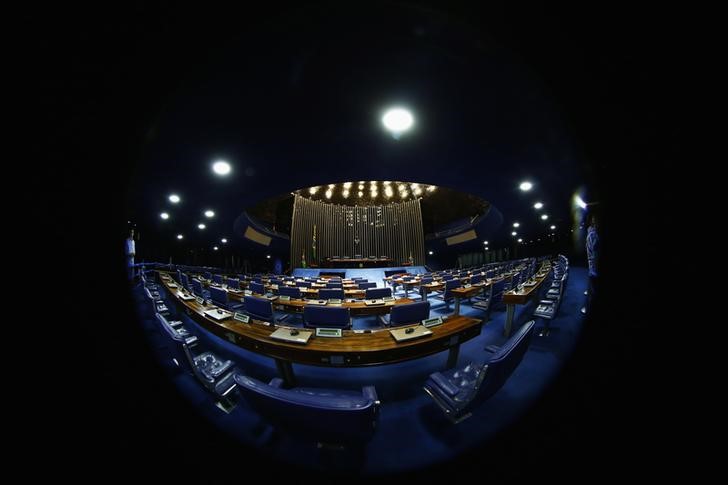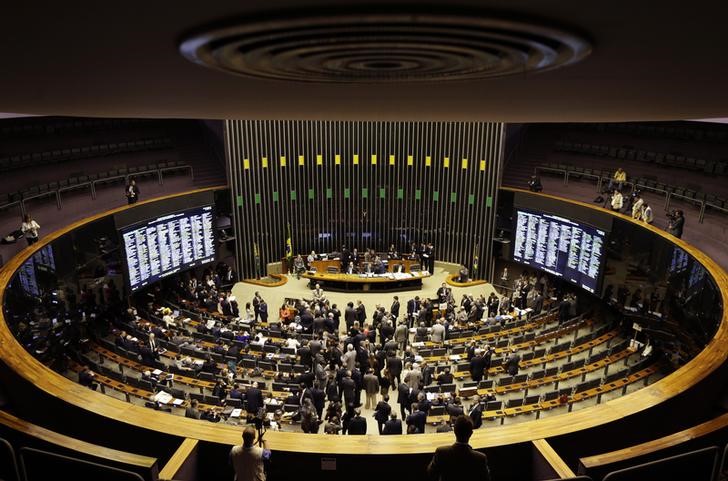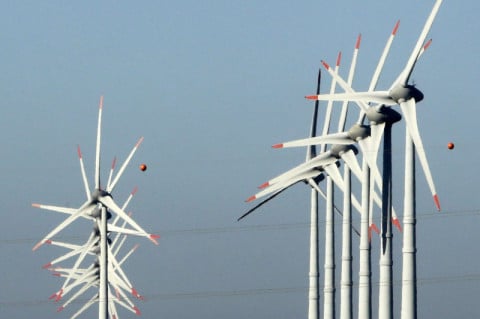President Donald Trump’s military occupations of U.S. cities have cost nearly half a billion dollars, according to an expert estimate provided exclusively to The Intercept.
The current $473 million price tag now includes $172 million spent in Los Angeles, where troops arrived in June; almost $270 million for the occupation of Washington, D.C., which began in August; nearly $15 million for Portland, Oregon, which was announced in September; and more than $3 million for Memphis, Tennessee, and almost $13 million for Chicago, which both began last month.
The National Priorities Project, a nonpartisan research group, tallied these totals from open-source information and costs-per-day estimates supplied to The Intercept by the office of Sen. Dick Durbin, D-Ill.
The skyrocketing price of Trump’s occupations come as the president threatens to deploy additional troops to more American cities to quell dissent and turn America into a full-blown police state. Trump recently said he could “send the Army, Navy, Air Force, Marines — I could send anybody I wanted” into urban America — while threatening to invoke the Insurrection Act, one of the executive branch’s most potent, oldest, and rarely used emergency powers. He has specifically threatened to surge troops into Baltimore, New York City, Oakland, St. Louis, San Francisco, and Seattle to put down supposed rebellions and to aid law enforcement agencies, despite falling crime numbers and pushback by local officials. Troops are also expected to be deployed to New Orleans later this month.
Despite the Trump administration’s unprecedented use of the military within the U.S., it has kept even basic details about domestic troop deployments, including the costs, secret.
“Our National Guard troops did not sign up to police their own neighbors.”
“If Donald Trump is burning through hundreds of millions of taxpayer dollars on his authoritarian campaign of intimidation, the American people deserve to know about it. Federal judges across the country — including a Trump appointee — have ruled that these deployments are not justified, and thus not only wasteful, but also illegal and unconstitutional, and our National Guard troops did not sign up to police their own neighbors or be used as political pawns,” Sen. Tammy Duckworth, D-Ill., told The Intercept. “Trump’s continued abuse of our military to intimidate Americans in their own neighborhoods — the very same Americans he expects to foot the bill for these deployments — must end immediately.”
Duckworth was one of 11 senators who asked the Congressional Budget Office late last month to provide an independent assessment of the projected expense of deploying federalized National Guard units for “domestic security operations,” including the activation, deployment, compensation and sustainment costs. The CBO did not say whether it will provide the requested assessment, telling The Intercept that it is “unable to respond to external inquiries due to a lapse in appropriated funds.”
Over the last six months, a Trump administration urban occupation playbook has emerged. In city after city, armed federal agents storm into neighborhoods, violating people’s rights. When American citizens exercise their First Amendment right to protest the authoritarian measures, federal agents respond with violence. While such protests have remained overwhelmingly peaceful and have never overwhelmed the capacity of local law enforcement, Trump has repeatedly proclaimed himself unable to enforce the law and seized command of National Guard members over the objections of state governors to quash dissent.
A federal judge in Oregon on Friday evening ruled that Trump illegally ordered state National Guard units to Portland, issuing a sweeping injunction that restrains the president’s claimed authority to deploy Guard members over a governor’s objection.
In a 106-page opinion, District Judge Karin Immergut ruled that Trump’s federalization of 200 Oregon National Guard members and deployments of federalized California and Texas Guard troops to an ICE facility in Portland exceeded his statutory authority and violated the 10th Amendment’s protections for state sovereignty. “[T]here was neither ‘a rebellion or danger of a rebellion’ nor was the President ‘unable with the regular forces to execute the laws of the United States’ in Oregon when he ordered the federalization and deployment of the National Guard,” she wrote.
A federal district court and the U.S. Court of Appeals for the 7th Circuit have so far blocked Trump’s attempt to federalize National Guard troops and deploy them into Chicago and surrounding counties. The Trump administration filed an emergency stay request last month with the Supreme Court and, on Monday, implored the justices to show “extraordinary deference” to the president as commander-in-chief, claiming Trump could have already deployed active-duty troops. “The standing military was undoubtedly an available option to quash the violent resistance to federal immigration enforcement,” Solicitor General D. John Sauer told the court.
In September, District Judge Charles Breyer ruled that the Trump administration’s ongoing Los Angeles occupation is illegal, noting that while troops were deployed “ostensibly to quell a rebellion,” there was “no rebellion, nor was civilian law enforcement unable to respond to the protests and enforce the law.”
Members of the National Guard have been activated or deployed under Title 10 authority or federal control in at least seven states — Arizona, California, Florida, Illinois, New Mexico, Oregon, and Texas — as occupation forces or to conduct anti-immigrant border operations. The occupation of D.C. is technically a Title 32 deployment — a federal-state hybrid — but since the capital has no governor, the D.C. National Guard’s chain of command runs from its commanding general to the secretary of the Army, to Secretary of War Pete Hegseth, to Trump.
At Trump’s urging, military leaders have recently ordered the National Guard in every state to develop a “quick reaction force” — trained to combat civil disturbances and riots — that can be ready to deploy with just hours’ notice. The units, in total, will reportedly number around 23,000 troops.
“It’s extremely concerning, on so many levels, that in less than six months since Trump first activated troops in LA, domestic military occupations are escalating — despite their dubious legality — and expenses are already approaching half a billion dollars,” said Hanna Homestead of the National Priorities Project, who provided the estimates on the deployment costs. “Especially given all the GOP’s massive social spending cuts that are stripping health care and food benefits from millions of families, and the fact that the Pentagon is reportedly planning to ramp up use of National Guard troops for an impending nationwide crackdown.”
Durbin’s office provided The Intercept with data from the Senate Armed Services Committee that placed the price tag for the Los Angeles deployment at $170 million as of mid-October, as well as an estimate for the typical deployment cost for 500 National Guard member for a period of 60 days: approximately $323,333 per day, or $647 per soldier per day. The National Priorities Project used these figures and open-source information about the size and length of deployments to provide cost estimates through November 15.
For months, the Pentagon has refused to provide figures on the mounting expense of federal troop deployments. “We won’t know the total cost until the mission concludes,” a Pentagon spokesperson told The Intercept in July, when forces were only deployed to Los Angeles. Recent follow-up requests for further information have gone unanswered.
“People don’t need troops in their backyard — they need health care, housing, and cheaper groceries.”
“Why is the Trump administration refusing to be transparent about how much money it’s spending on this political stunt?” asked Sen. Elizabeth Warren, D-Mass., another of the lawmakers who requested the CBO analysis. “People don’t need troops in their backyard — they need health care, housing, and cheaper groceries.”
Trump has teased using urban occupations to hone the skills of the armed forces. “We should use some of these dangerous cities as training grounds for our military,” he told a gathering of hundreds of generals and admirals.
Trump has also justified his push to militarize urban America through hyperbole, dog-whistle politics and the peddling of baseless lies. Trump said protesters in Los Angeles were “animals” and “a foreign enemy,” calling the city “a trash heap” with “entire neighborhoods under control” of criminals. Trump described Chicago as a “war zone.” He similarly claims that Portland is “war-ravaged” and in a state of rebellion. “Portland has been on fire for years. … I really think that’s really criminal insurrection,” Trump told reporters. He said D.C.’s homicide rate is higher than “the worst places on Earth.” (Not only did Trump use older, misleading statistics, but even cherry-picking the data, at least 49 other cities across the world had higher homicide rates.) He even fabricated a story of hand-to-hand combat between troops and child gangsters from the Venezuelan gang Tren de Aragua on the streets of the capital. For weeks, the White House has failed to respond to questions about this fictional incident.
Trump has repeatedly threatened to invoke the Insurrection Act, which allows the president to circumvent the Posse Comitatus Act, a bedrock 19th-century law banning the use of federal troops to execute domestic law enforcement; Posse Comitatus is seen as fundamental to the democratic tradition in the United States. “The Insurrection Act has been used routinely by presidents. I haven’t chosen to use it, but … if I needed it, I could do it. And if I needed it, that would mean I could bring in the Army, the Marines, I could bring in whoever I want,” Trump told “60 Minutes” recently.
Trump seems to believe that the Insurrection Act affords him almost unlimited power to wield the military against Americans and has repeatedly made wild and erroneous claims about the law. Trump claimed, for example, that an unnamed president used the Insurrection Act “28 times during the course of a presidency,” but no president has invoked the Act on more occasions than Ulysses S. Grant’s six times, according to research by New York University’s Brennan Center for Justice. The act and the similar prior laws have been invoked on only 30 occasions in U.S. history. Trump also claims that “50 percent of the presidents” have invoked the act when only 17 of 45 presidents — less than 38 percent — have invoked the act or its precursor laws, according to the Brennan Center.
The White House did not respond to a request for comment about the president’s confusion about the act.
“The Insurrection Act is an extremely powerful tool, but it’s not a blank check. The president can deploy active-duty troops or federalized National Guard forces under the law only if its criteria are met. And while those criteria appear quite broad, the Department of Justice has long taken the position that they are limited by the Constitution and tradition,” Elizabeth Goitein, senior director of the Brennan Center’s liberty and national security program, told The Intercept. “Properly interpreted, the law can only be used in extreme circumstances that simply aren’t present in Los Angeles, Portland, Chicago, or anywhere else in the United States.”
The president isn’t the only one peddling misinformation about federal troop deployments. U.S. Northern Command — which oversees federal troop deployments — provides a link to an official National Guard document on “Federalizations of the Guard for Domestic Missions through 2025,” which details deployments of state militia and National Guardsmen from the 1790s to the present. Although an attached chart shows that in six of 11 instances, troops were deployed without the consent of a state’s governor, the document nonetheless asserts: “In each of these instances, the governor requested federal forces to assist in maintaining order.”
Goitein scoffed at the claim. “That’s simply not true,” she said, pointing to Little Rock, Arkansas. The document cites President Dwight Eisenhower’s 1957 deployment of National Guard and active-duty troops to enforce desegregation in the schools as an example of an instance in which a governor requested and received help from federal forces. “Far from requesting this deployment, the governor had deployed the Arkansas National Guard to prevent desegregation,” she explained. “Eisenhower actually federalized the National Guard for the purposes of ordering them to stand down. To portray this famous standoff as an incident in which the governor asked for federal help is laughable.” (The document even notes that Gov. Orval Faubus “is famously quoted as having called his own National Guard ‘occupation troops’ after they were federalized.”)
“Protest plays an essential role in our democracy and President Trump is hellbent on suppressing it.”
Trump’s pricey urban occupations come amid a welter of authoritarian acts, including a crackdown on domestic enemies and an undeclared war in the Caribbean Sea and the Pacific Ocean in which the president claims the right to summarily execute persons he deems to be “narco-terrorists.”
Trump unilaterally decreed that 24 “designated terrorist organizations,” or DTOs are in a state of “non-international armed conflict” with the United States. In addition to this secret list of foreign groups, Trump has also ordered his administration to compile a “domestic terrorist organization” list made up of his political foes, despite the fact there is no legal mechanism for labeling exclusively domestic organizations as terrorist groups. Under Trump’s National Security Presidential Memorandum 7, or NSPM-7, he instructed his administration to target U.S. progressive groups and their donors as well as political activists who profess undefined anti-American, anti-fascist, or anti-Christian sentiments.
The White House has not responded to repeated requests, for more than a week, to clarify whether those who belong to groups on the administration’s secret “domestic terrorist organization” list are subject to summary execution as are members of groups on the administration’s secret “designated terrorist organizations” list.
Trump’s authoritarian measures have been bolstered by his half-billion-dollar effort to employ troops to chill dissent in America’s cities. “Protest plays an essential role in our democracy and President Trump is hellbent on suppressing it,” said Hina Shamsi, director of the ACLU’s National Security Project. “The president is attempting to normalize military policing of protest, but as the founders of this country made abundantly clear, turning troops on civilians is an intolerable threat to our liberties. President Trump is imperiling our First Amendment rights, and we urge the court to deny his application.”

 German (DE)
German (DE)  English (US)
English (US)  Spanish (ES)
Spanish (ES)  French (FR)
French (FR)  Hindi (IN)
Hindi (IN)  Italian (IT)
Italian (IT)  Portuguese (BR)
Portuguese (BR)  Russian (RU)
Russian (RU) 





:strip_icc()/i.s3.glbimg.com/v1/AUTH_59edd422c0c84a879bd37670ae4f538a/internal_photos/bs/2023/l/g/UvNZinRh2puy1SCdeg8w/cb1b14f2-970b-4f5c-a175-75a6c34ef729.jpg)










Comentários
Aproveite ao máximo as notícias fazendo login
Entrar Registro